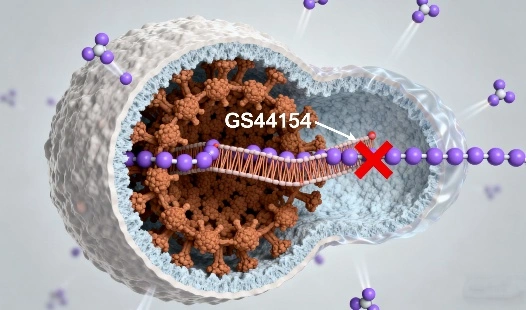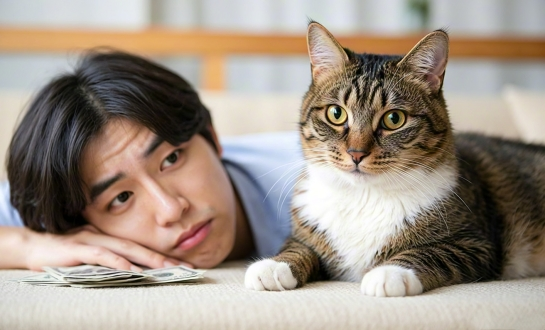FIP Treatment Worldwide: The Status of GS-441524 Use and Regulation
Global Availability: Where is GS-441524 Legally Accessible?
A terrible diagnosis for cat owners worldwide, Feline Infectious Peritonitis (FIP) has long been considered a fatal disease with limited treatment options. The emotional and financial toll on families affected by FIP is substantial, as cats previously had little chance of survival. However, the feline community now has renewed hope thanks to recent breakthroughs in antiviral therapies, particularly the discovery of GS-441524 fip. This compound has demonstrated remarkable potential in clinical studies, offering an effective treatment avenue for cats suffering from FIP. In this article, we explore the current regulatory landscape surrounding GS-441524, examine its use in veterinary practices worldwide, and review the ongoing research that is helping define its role in the management of feline infectious peritonitis in cats.
|
|
|
Global Availability: Where is GS-441524 Legally Accessible?
Legal Status in Various Countries
The availability of GS-441524 varies significantly across the globe. While some countries have embraced its use in treating FIP, others maintain strict regulations or outright bans. Here's a breakdown of its legal status in key regions:
- United States: GS-441524 is not FDA-approved but may be available through compounding pharmacies with a veterinary prescription.
- European Union: Regulations vary by country, with some allowing veterinary use under specific conditions.
- Australia: Strict regulations limit access, though compassionate use programs exist.
- Asia: Countries like Japan and South Korea have seen increased veterinary use, while China remains a significant producer.
Compassionate Use Programs
In regions where GS-441524 is not officially approved by regulatory authorities, compassionate use programs have become an essential lifeline for cats diagnosed with Feline Infectious Peritonitis (FIP). These programs are designed to allow veterinarians to legally prescribe medications that have not yet received formal approval, specifically in situations where no other effective treatment options exist. For many cat owners and veterinary professionals, these programs provide a crucial pathway to saving lives and improving outcomes for feline infectious peritonitis cat patients. By offering access to potentially life-saving therapy under controlled conditions, compassionate use programs give hope to those facing the devastating prognosis of FIP and allow ongoing monitoring of treatment safety and efficacy.
Clinical Trials: Current Research on GS-441524 Efficacy
Ongoing Studies and Their Findings
The efficacy of GS-441524 in treating FIP continues to be a subject of intense research. Several clinical trials are currently underway, focusing on various aspects of the drug's performance:
- Dosage optimization studies
- Long-term efficacy and relapse rates
- Comparative studies with other antiviral agents
- Investigations into potential side effects and drug interactions
Promising Results and Areas for Further Investigation
Preliminary results from these studies have been encouraging, with many cats showing significant improvement or complete remission of FIP symptoms. However, researchers emphasize the need for continued investigation into:
- Optimal treatment duration
- Efficacy in different FIP forms (wet, dry, neurological)
- Potential for drug resistance development
- Long-term health impacts on treated cats
|
|
|
|
Regulatory Challenges: Navigating GS-441524 Approval Processes
Hurdles in Drug Approval
The path to official approval for GS-441524 faces several challenges:
- Lack of large-scale, controlled clinical trials
- Intellectual property and patent issues
- Regulatory agencies' requirements for safety and efficacy data
- Balancing urgency of treatment with rigorous approval processes
Efforts Towards Standardization
Despite these challenges, efforts are underway to standardize GS-441524 use and regulation:
- Collaboration between veterinary organizations and regulatory bodies
- Development of guidelines for compassionate use programs
- Initiatives to fund and conduct larger-scale clinical trials
- Advocacy for expedited review processes for life-saving veterinary drugs
Conclusion
The global landscape of GS-441524 use in treating Feline Infectious Peritonitis (FIP) is both complex and continuously evolving. Despite the significant progress made in understanding the compound’s efficacy, safety profile, and potential applications, regulatory challenges remain a major hurdle in many regions. Ongoing research, clinical trials, and collaborative efforts within the veterinary community are steadily building the evidence base necessary to support broader acceptance and eventual approval. These initiatives offer hope for a future where GS-441524 becomes a widely accessible and officially sanctioned treatment for cats diagnosed with FIP. As veterinarians, researchers, and pet owners navigate this evolving landscape, the ultimate focus remains on improving clinical outcomes, extending survival, and enhancing the quality of life for feline infectious peritonitis cat patients around the world.
|
|
|
|
FAQ
1. Q: What is the success rate of GS-441524 in treating FIP?
A: While success rates can vary, recent studies have shown promising results, with many reporting success rates of 80% or higher in cats treated with GS-441524. However, factors such as the stage of FIP, the form of the disease, and individual cat health can influence outcomes.
2. Q: How long does GS-441524 treatment typically last?
A: The standard treatment protocol for GS-441524 typically lasts 12 weeks. However, some cases may require longer treatment periods, especially for cats with neurological or ocular forms of FIP.
3. Q: Are there any side effects associated with GS-441524 treatment?
A: While generally well-tolerated, some cats may experience mild side effects such as injection site reactions, gastrointestinal upset, or temporary changes in behavior. Serious side effects are rare but can occur. Close monitoring by a veterinarian throughout the treatment course is essential.
Call to Action
When it comes to treating Feline Infectious Peritonitis (FIP), we at BLOOM TECH know how important it is to use only the highest quality pharmaceutical ingredients. To guarantee outstanding purity, potency, and effectiveness for veterinary usage, our GS-441524 powder is painstakingly made to satisfy the highest industry standards. We provide a stable and reliable supply chain that compounding pharmacies and veterinarians can rely on thanks to our modern GMP-certified facilities and rigorous quality control procedures. By placing an emphasis on dependability, safety, and quality, BLOOM TECH assists veterinary practitioners throughout the globe in providing optimal treatment to felines afflicted with FIP, so contributing to better results and better animal health on a global scale.
Don't let regulatory hurdles stand in the way of saving feline lives. Partner with BLOOM TECH for your GS-441524 needs and benefit from:
- Consistent high-quality product with >98% purity
- Competitive pricing and flexible ordering options
- Comprehensive documentation to support regulatory compliance
- Expert technical support from our dedicated team
Take the next step in advancing FIP treatment. Contact us today at Sales@bloomtechz.com to learn more about our GS-441524 powder and how we can support your veterinary pharmacy or clinic.
References
1. Pedersen, N.C., et al. (2019). Efficacy and safety of the nucleoside analog GS-441524 for treatment of cats with naturally occurring feline infectious peritonitis. Journal of Feline Medicine and Surgery, 21(4), 271-281.
2. Addie, D.D., et al. (2020). Feline infectious peritonitis. ABCD guidelines on prevention and management. Journal of Feline Medicine and Surgery, 22(11), 1043-1059.
3. Murphy, B.G., et al. (2018). The nucleoside analog GS-441524 strongly inhibits feline infectious peritonitis (FIP) virus in tissue culture and experimental cat infection studies. Veterinary Microbiology, 219, 226-233.
4. Dickinson, P.J., et al. (2020). Antiviral treatment using the adenosine nucleoside analogue GS-441524 in cats with clinically diagnosed neurological feline infectious peritonitis. Journal of Veterinary Internal Medicine, 34(4), 1587-1593.

Echo
9 years of experience in chemical articles; Doctoral degree; Organic Chemistry major; R&D-4 Dept; Technology support; R&D engineer
Anticipating your Business & Technology support inquiry
Please send us the products that interest you, and we will provide you with one-on-one service
Recommended Blog
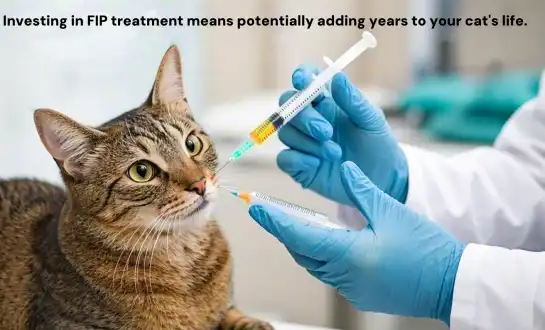
Is FIP Treatment Too Expensive? How to Budget for GS-441524?
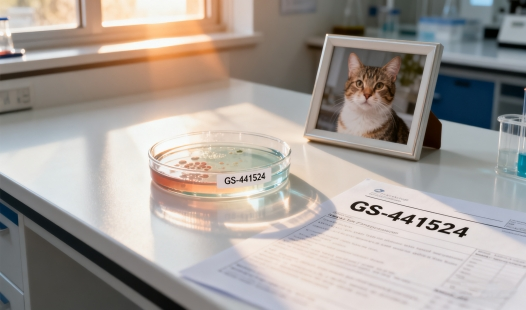
What are the differences in treatment for wet and dry FIP?
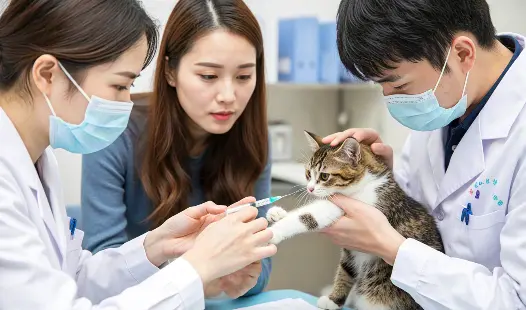
GS-441524 Injection Site Issues: What to Do About Redness and Lumps?
_副本_1757906640273.webp)
FIP Treatment Worldwide: The Status of GS-441524 Use and Regulation










